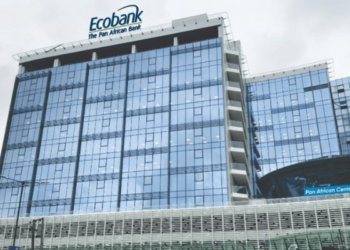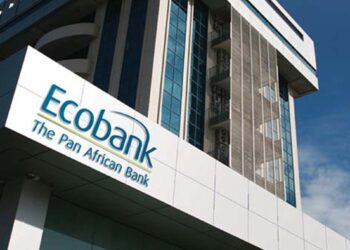The most innovative bank in Africa – at least according to Global Finance – Ecobank Transnational Incorporated (ETI), has done its bit to hold its fort on the continent’s financial landscape. From being awarded by Global Finance for its prompt identification of new tools and its many unified integrated apps that cater to its customers across 33 African countries – the largest footprint of any bank operating in West, Central, East, and Southern Africa, to Euromoney’s prize of Africa’s Best Bank for Corporate Responsibility, the year 2020 has had its own streaks for the bank. However, it too has had its fair share of the year’s madness, evident primarily in its Q2 financial statements – the peak period of the COVID-19 pandemic and the lockdown by virtue of it.
Even with many companies across the world grappling to at least make the same level of revenue from previous years, Ecobank’s Net Interest Income recorded an impressive increase of 24% from N68.5 billion in Q2 2019 to N84.8 billion in Q2 2O20. This can be attributed to both an increase in interest income as well as a 21% decrease in interest expense – a combination of strategies that will leave any company well within its books. While its operating lines were relatively impressive, there is only so much the company can control by itself. For Ecobank, the impact of the ailing macroeconomic conditions is a 101% increase in impairment losses on financial assets from N10.3 billion in Q2 2019 to N21 billion in the period under review. But it might not be as bad as it seems.
READ: Analysis: FCMB is running out of time
Impairment and its impact on the company’s financials
Impairment occurs when the fair value of a company’s financial assets falls below its book value. Before now, companies were only expected to provide for bad debts at least from the point where they become doubtful. However, since the movement from IAS 39 to IFRS 9, companies have been required to book an expected credit loss on all their financial assets.
In order to account for this expected credit loss, there is a range of factors that are considered particularly the company’s Probability of Default (PD) and Loss Given Default (LGD). And as far as the probability of default is concerned, a wide range of relevant forward-looking information (FLI) – that is things that could happen to the company based on its assessment of macroeconomic indicators, are used to form its assumptions. What this means is that if the probability of default in Q1 was high, Q2 naturally had a storm coming with an increased possibility of the bank’s obligors defaulting.
READ: UPDATED: Nigeria received $1.29 billion capital inflows in Q2 2020, down by 78.6%
Ecobank’s impairment losses were governed by 3 core elements in Q2 2020. The first was a 40% increase in impairment charges on loans and advances, then a 4% decrease in impairment charges on other financial assets, and finally, a 21% decrease in recoveries. The company had noted in its books that the period’s net impairment losses were higher compared to the previous year, mainly because recoveries of non-performing loans in the six months to June were lower compared to recoveries in the prior year’s period.
This can be attributed to the stringent financial position of many of the company’s debtors. So even though it had taken the much-needed steps to reduce its non-performing loans, its cost-of-risk for the period was 1.7% compared with 0.7% for the previous year. It also noted the impact of monetary and fiscal policies, in the central banks of countries where ETI operates, all of which have been aimed at mitigating market concerns and providing liquidity to the market.
READ: NPL: Banks recover N738.15 billion from oil and gas sector in Nigeria
In explaining the impairment increase, it revealed that, “the management team has taken appropriate steps to assess the impact on the Group’s financial statement based on the information available as of date.” It, however, noted that it is currently reviewing the key parameters for the impairment model.
“This would be finalized during the second half of 2020. In the meantime, we accounted for an additional collective assessment impairment of $36 million to cope with the expected potential risk of this pandemic in our financial structure and the various current uncertainties in the markets.”
READ: STERLING BANK: Reduced fee income, weak operating efficiency drives steep decline in pre-tax profit
The resultant effect on its income statement is an 18% decrease in profit for the period from N59.5 billion in Q2 2019 to N48.5 billion in Q2 2020. The company can only hope that the actual impact is far less than predicted.
With significantly increased customer deposits in Q2, boosting its liquidity in the unsettling economic times together with its strengthened operational position, Ecobank is undoubtedly on a good course. While its stock price is still at its 52-week low of N3.90 amongst other unfavorable stock market trends, it is only a matter of time before its operational growth catches up with the stock market and it commences its journey to an upward trend.


















